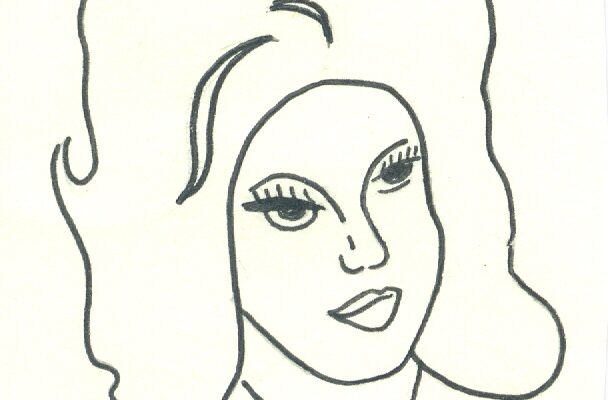Priscilla reveals new perspective to fame

Elvis Presley is one of the most famous American artists of all time. The rich history of his life is often discussed in pop culture, whether it surrounds his estate, Graceland, his untimely death or his impact on music. However, the new A24 film, “Priscilla”, discusses one of the most important parts of his life: his relationship with his ex wife, Priscilla Beaulieu.
Although the film explains the story of how they met in detail, the origins of their relationship are shocking. The two met while Elvis served in the army in Germany for two years, as Priscilla’s father was also stationed. Their relationship continued as Priscilla visited him in Memphis after he returned from the army, which then led to her eventually living with him before she had graduated high school. Keep in mind the age gap of ten years when the two met when Priscilla was 14 and Elvis was 24.
Even from the beginning of the film, there are signs of Elvis’s concerning behavior, such as telling Priscilla that she is “mature for her age” which left me feeling viscerally uncomfortable. However, the film explores their relationship from her perspective, and I felt that Sofia Coppola’s directorial style shed an intimate light on the all-encompassing feeling attached with one’s first love. Although their relationship was far from perfect, Priscilla Presley has expressed that she will always love him and that even after their divorce, they remained friends.
Jacob Elordi portrayed Elvis and Cailee Spaeny portrayed Priscilla. Both actors were incredible and I found the experience of watching them in the film immersive. Elordi’s expressions of rage felt as if I were in the room, waiting for the tension to be over, and Spaeny’s expressions of sadness and longing felt as if I too were waiting for Elvis at Graceland.
The underlying abuse which is present in their relationship is there even from one of their first interactions. Elvis mentions to Priscilla how he is homesick and that she “reminds him of home,” as he also mentions that he misses his late mother. The age-gap between the two left me feeling uncomfortable and empathetic towards Priscilla; she was just a child when they met and was forced to deal with many adult problems, such as those mentioned in this conversation.
The self-important nature attached with fame is a significant reason as to why Elvis and Priscilla’s marriage falls apart. There are many instances of Elvis being unfaithful to his wife, in addition to his bizarre spiritual era that is highlighted in the film. Elvis has a spiritual “guide,” who furthers his ego and tells him, “You’re not just a drop in the ocean, you’re the whole ocean.” The self-centered aspects encouraged in this quote made me empathize even further with Priscilla; I imagined myself in her position, being in love with a man who is somehow “allowed” to do whatever he wants while I am expected to do what he says always.
The end of the film is as beautiful as the rest of it; Priscilla dyes her hair back to brunette, as she’d originally dyed it black because Elvis told her to, perhaps the first step in independence. The decision to leave the relationship and ultimately choose herself is inevitably difficult, however I enjoyed Spaeny’s portrayal of the feeling that although their divorce was bittersweet, Priscilla left with many memories and, ultimately, a life of her own. I cannot recommend this film enough and commend Coppola and all of the actors on a job well done.



